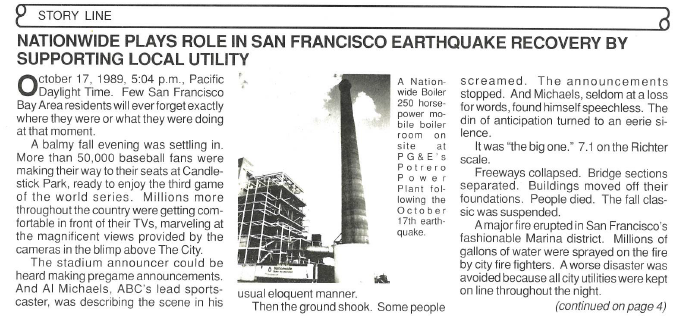Celebrating Diversity, Connection, and Leadership in the Boiler Industry
Nationwide Boiler recently participated in the inaugural Women in the Boiler Industry (WIBI) Symposium, held in Minneapolis, MN, on October 15-17th, 2025. Hosted by the American Boiler Manufacturer Association (ABMA), the event joined women and men within the boiler industry to celebrate diversity, foster connections, and advance the future of the boiler industry. Our company proudly sponsored the Welcome Networking Reception for this event, and we were thrilled to have Chelsey Ryker, Director of Marketing & Communications, represent our team.
Bringing together professionals from across North America, the WIBI Symposium was a two-day event full of inspiration and learning. Attendees participated in industry tours, keynote sessions, interactive workshops, and roundtable discussions focused on shaping a more inclusive and dynamic industry. The event included keynotes and fireside chats for building leadership presence and personal mastery, as well as roundtables and panels with trailblazers whose impact is igniting change throughout the boiler community. The event also included sessions on boiler code changes, financial management, boosting creativity and productivity through AI, positive communication, and boiler safety.
Nationwide Boiler’s Commitment to Visibility and Advancement
In addition to her participation, Chelsey also served on the WIBI Advisory Committee to help shape the impact of the event. She expressed the importance of Nationwide Boiler’s support of events like this through a video interview in the weeks leading up to the WIBI Symposium. “Supporting WIBI means we’re investing in visibility, empowerment, and advancement of women in our field,” she noted, underscoring Nationwide Boiler’s dedication to fostering innovation through inclusion. “It’s about creating space for new voices, showing that Nationwide Boiler stands behind the people who are shaping our future.”
She also shared her excitement about connecting with fellow women in the boiler industry and the value of building a community where stories, experiences, and diverse perspectives can be shared. “Women can be leaders in this industry; an industry that [is evolving to embrace greater diversity], and women bring a unique perspective,” she said. “Events like WIBI matter because they shift the narrative. They show that women not only belong in the industry but they’re already leading, innovating and driving change.” The WIBI initiative goes beyond networking; it's about opening doors to new opportunities and inspiring women to pursue leadership roles, fostering a more inclusive and forward-thinking industry.

The WIBI Symposium concluded with a dynamic panel of distinguished leaders sharing philosophies and lessons learned, and new awards celebrated trailblazers and rising stars who are shaping the future of the sector. As one event organizer noted, “The 2025 WIBI Symposium was more than a meeting, it was the beginning of a movement.” This year’s event reinforced a powerful truth: progress happens when diverse voices lead the conversation and collaborate toward shared goals.
Nationwide Boiler is proud to champion this progress, continuing to lead initiatives that foster diversity, innovation, and an inclusive future for all professionals in the industry.




